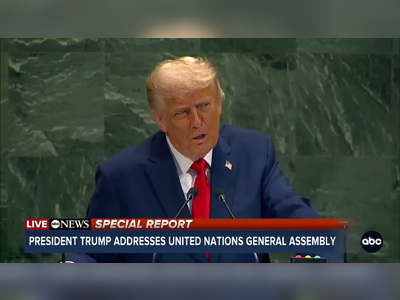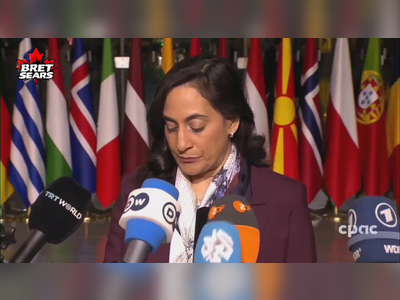Severe Flu Season in Poland Leads to Medication Shortages and Rising Fatalities
Poland faces a significant surge in flu cases, overwhelming healthcare resources and prompting government intervention.
Poland is currently grappling with a notably severe flu season, characterized by a dramatic increase in infection rates and a concerning rise in fatalities.
Reports indicate that flu cases have surged by several hundred percent, prompting widespread shortages of antiviral medications across pharmacies.
Chief Pharmaceutical Inspector Łukasz Pietrzak highlighted that sales of antiviral drugs have surged by over 335% in January compared to the same period in the previous year.
In an effort to address these shortages, the Ministry of Health announced improvements in the situation, reporting that approximately 148,000 packs of flu medication are now available in pharmacies and wholesalers.
Demand for oseltamivir, a key antiviral treatment, has reached unprecedented levels, with Polish pharmacies having dispensed nearly two million prescriptions for flu treatment since September, according to data from the Chief Pharmaceutical Inspectorate.
Minister of Health Izabela Leszczyna addressed the shortage in a radio interview, noting that although the sudden increase in patients requiring antiviral medication has created restocking challenges, efforts are progressing.
As of February 14, a Polish manufacturer began releasing new shipments of the medication, with 180,000 additional packs anticipated in the coming days.
The Ministry of Health reported that an intervention with the European Medicines Agency has facilitated the redirection of flu medications from other countries into Poland, resulting in accelerated deliveries from two pharmaceutical companies.
It is expected that 400,000 packs of flu treatments will enter circulation this week.
Meanwhile, the flu epidemic appears to be showing signs of decline.
Recent data indicates that more than 150,000 flu cases were reported in the past week, down from 180,000 the previous week.
Chief Sanitary Inspector Dr. Paweł Grzesiowski expressed cautious optimism regarding this trend during a press briefing on February 18.
The current high number of flu cases and the spike in medication demand are attributed to low vaccination rates in the country.
Approximately 5% of Poland's population receives the flu vaccine each year, with fewer than 1.8 million individuals vaccinated this season.
In an effort to boost vaccination rates, flu vaccines are provided free of charge to children and adolescents under 18 years of age, as well as seniors over 65. Adults aged between 18 and 64 can avail themselves of a 50% subsidy, bringing the price to around €6. Recent legislative changes, effective February 14, 2025, have also made significant alterations to vaccination access.
Pharmacists now have the authority to prescribe and administer vaccinations, which is expected to enhance accessibility, especially for those with difficulties in securing a doctor's appointment.
This service incurs a fee, with the cost of vaccine administration estimated at €7.
Furthermore, starting January 1, 2025, health assessments for pre-vaccination contraindications in children over nine can be performed by both nurses and midwives, in addition to doctors.
The Ministry of Health is actively running promotional and educational campaigns aimed at encouraging flu vaccinations as part of the National Health Programme for 2020–2025, emphasizing the importance of increased vaccine accessibility to improve public health and immunity.
Reports indicate that flu cases have surged by several hundred percent, prompting widespread shortages of antiviral medications across pharmacies.
Chief Pharmaceutical Inspector Łukasz Pietrzak highlighted that sales of antiviral drugs have surged by over 335% in January compared to the same period in the previous year.
In an effort to address these shortages, the Ministry of Health announced improvements in the situation, reporting that approximately 148,000 packs of flu medication are now available in pharmacies and wholesalers.
Demand for oseltamivir, a key antiviral treatment, has reached unprecedented levels, with Polish pharmacies having dispensed nearly two million prescriptions for flu treatment since September, according to data from the Chief Pharmaceutical Inspectorate.
Minister of Health Izabela Leszczyna addressed the shortage in a radio interview, noting that although the sudden increase in patients requiring antiviral medication has created restocking challenges, efforts are progressing.
As of February 14, a Polish manufacturer began releasing new shipments of the medication, with 180,000 additional packs anticipated in the coming days.
The Ministry of Health reported that an intervention with the European Medicines Agency has facilitated the redirection of flu medications from other countries into Poland, resulting in accelerated deliveries from two pharmaceutical companies.
It is expected that 400,000 packs of flu treatments will enter circulation this week.
Meanwhile, the flu epidemic appears to be showing signs of decline.
Recent data indicates that more than 150,000 flu cases were reported in the past week, down from 180,000 the previous week.
Chief Sanitary Inspector Dr. Paweł Grzesiowski expressed cautious optimism regarding this trend during a press briefing on February 18.
The current high number of flu cases and the spike in medication demand are attributed to low vaccination rates in the country.
Approximately 5% of Poland's population receives the flu vaccine each year, with fewer than 1.8 million individuals vaccinated this season.
In an effort to boost vaccination rates, flu vaccines are provided free of charge to children and adolescents under 18 years of age, as well as seniors over 65. Adults aged between 18 and 64 can avail themselves of a 50% subsidy, bringing the price to around €6. Recent legislative changes, effective February 14, 2025, have also made significant alterations to vaccination access.
Pharmacists now have the authority to prescribe and administer vaccinations, which is expected to enhance accessibility, especially for those with difficulties in securing a doctor's appointment.
This service incurs a fee, with the cost of vaccine administration estimated at €7.
Furthermore, starting January 1, 2025, health assessments for pre-vaccination contraindications in children over nine can be performed by both nurses and midwives, in addition to doctors.
The Ministry of Health is actively running promotional and educational campaigns aimed at encouraging flu vaccinations as part of the National Health Programme for 2020–2025, emphasizing the importance of increased vaccine accessibility to improve public health and immunity.
AI Disclaimer: An advanced artificial intelligence (AI) system generated the content of this page on its own. This innovative technology conducts extensive research from a variety of reliable sources, performs rigorous fact-checking and verification, cleans up and balances biased or manipulated content, and presents a minimal factual summary that is just enough yet essential for you to function as an informed and educated citizen. Please keep in mind, however, that this system is an evolving technology, and as a result, the article may contain accidental inaccuracies or errors. We urge you to help us improve our site by reporting any inaccuracies you find using the "Contact Us" link at the bottom of this page. Your helpful feedback helps us improve our system and deliver more precise content. When you find an article of interest here, please look for the full and extensive coverage of this topic in traditional news sources, as they are written by professional journalists that we try to support, not replace. We appreciate your understanding and assistance.










